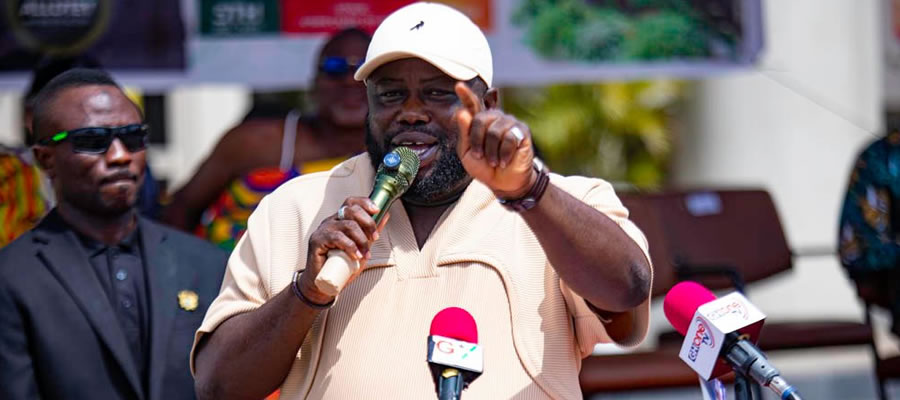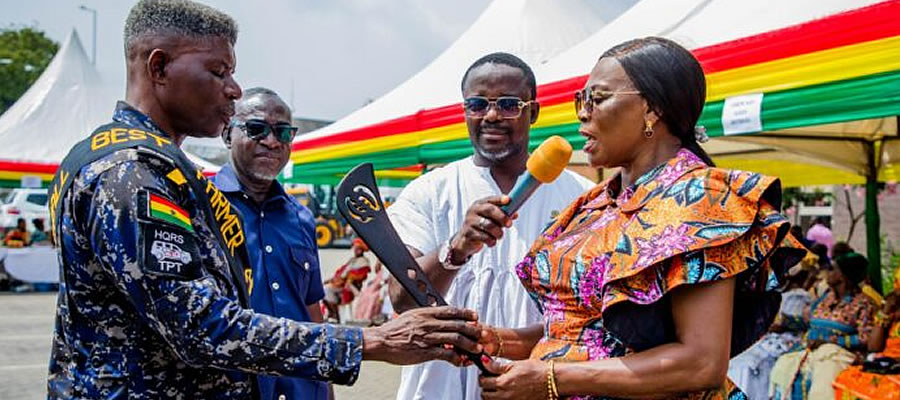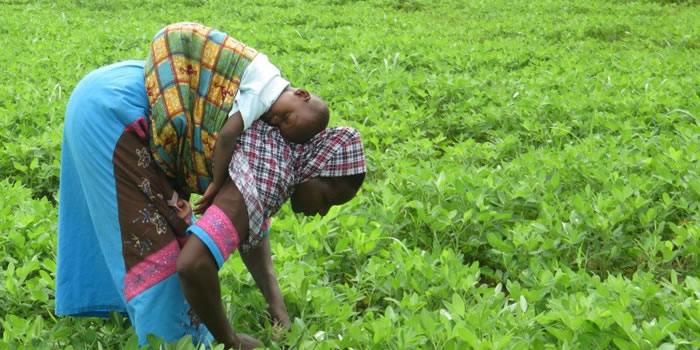

AGRICULTURE
MOFAD: FRIDTJOF NANSEN

Date Created : 9/12/2017 2:03:34 AM : Story Author : Public Relations Unit - MOFAD
It is, therefore, very important that continuous monitoring of fisheries resources now and even more that oil has been discovered deep with our continental shelf and off shore is done.
FAO started the implementation of the project “Strengthening the Knowledge Base for and Implementing an Ecosystem Approach to Marine Fisheries in Developing Countries (EAF-Nansen GCP/INT/003/NOR)” in December 2006 with funding from the Norwegian Agency for Development Cooperation (Norad). The EAF-Nansen project is a follow-up to earlier projects/programmes in a partnership involving FAO, Norad and the Institute of Marine Research (IMR), Bergen, Norway on assessment and management of marine fishery resources in developing countries. The project works in partnership with governments and also GEF-supported Large Marine Ecosystem (LME) projects and other projects that have the potential to contribute to some components of the EAF-Nansen project.
The EAF-Nansen project offers an opportunity to coastal countries in sub-Saharan Africa, working in partnership with the project, to receive technical support from FAO for the development of national and regional frameworks for the implementation of Ecosystem Approach to Fisheries management and to acquire additional knowledge on their marine ecosystems for their use in planning and monitoring. The project contributes to building the capacity of national fisheries management administrations in ecological risk assessment methods to identify critical management issues and in the preparation, operationalization and tracking the progress of implementation of fisheries management plans consistent with the ecosystem approach to fisheries.
The importance of fisheries to the economy of Ghana is that, it creates employment, increases GDP and exportation. Presently, what is happening to affect the fisheries is climate change, pollution of our waters, man made activities, over exploitation and increase in human population. This has caused the resources to decline.
The Ministry of Fisheries and Aquaculture Development and the Fisheries Commission(MOFAD/FC) have taken steps to address the issue. To compliment efforts by the government on research, Vessel RV DR Fridtjof Nansen has come into the sub region to help assess stocks. Some of the objectives are to extend training and capacity development to scientists, technicians and managers, to conduct needs assessments, to help design a training strategy for specific countries and at the regional level, to continue to enhance the human and institutional capacity of countries to make the best of the scientific knowledge available and to integrate it into best management practices and to also address pollution issues.
Marine ecosystem is dynamic so FAO and the Government of Norway are working together in many developing countries in support of sustainable use of marine resources.
The new Nansen will create more opportunities for national scientists to understand more of the interactions in the ecosystems to enable proper management plans to be set up for the sustenance of the fisheries.





 facebook
facebook
 X
X
 Youtube
Youtube
 instagram
instagram
 +233 593 831 280
+233 593 831 280 0800 430 430
0800 430 430 GPS: GE-231-4383
GPS: GE-231-4383 info@ghanadistricts.com
info@ghanadistricts.com Box GP1044, Accra, Ghana
Box GP1044, Accra, Ghana